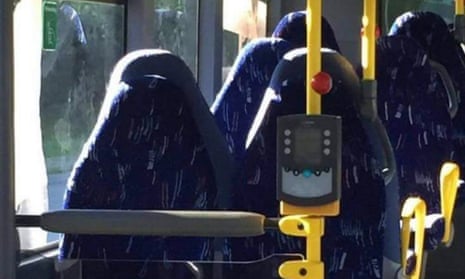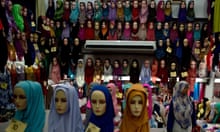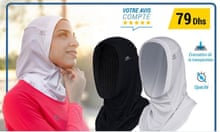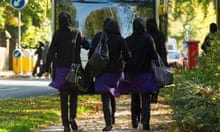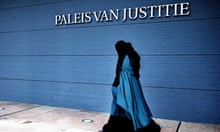A Norwegian anti-immigrant group has been roundly ridiculed after members apparently mistook a photograph of six empty bus seats posted on its Facebook page for a group of women wearing burqas.
“Tragic”, “terrifying” and “disgusting” were among the comments posted by members of the closed Fedrelandet viktigst, or “Fatherland first”, group beneath the photograph, according to screenshots on the Norwegian news website Nettavisen.
Other members of the 13,000-strong group, for people “who love Norway and appreciate what our ancestors fought for”, wondered whether the non-existent passengers might be carrying bombs or weapons beneath their clothes. “This looks really scary,” wrote one. “Should be banned. You can’t tell who’s underneath. Could be terrorists.”
Further comments read: “Ghastly. This should never happen,” “Islam is and always will be a curse,” “Get them out of our country – frightening times we are living in,” and: “I thought it would be like this in the year 2050, but it is happening NOW,” according to thelocal.no and other media.
The photograph, found on the internet, was posted “for a joke” last week by Johan Slåttavik, who has since described himself as “Norway’s worst web troll and proud of it”, beneath a question asking the group: “What do people think of this?”
Slåttavik told Nettavisen and Norway’s TV2 he wanted to “highlight the difference between legitimate criticism of immigration and blind racism”, and was “interested to see how people’s perceptions of an image are influenced by how others around them react. I ended up having a good laugh.”
It went viral in Norway after Sindre Beyer, a former Labour party MP who said he has been following Fatherland first for some time, published 23 pages of screenshots of the group’s outraged comments.
“What happens when a photo of some empty bus seats is posted to a disgusting Facebook group, and nearly everyone thinks they see a bunch of burqas?” he asked in a post shared more than 1,800 times.
This article includes content provided by Facebook. We ask for your permission before anything is loaded, as they may be using cookies and other technologies. To view this content, click 'Allow and continue'.
The comments suggested the vast majority of the anti-immigrant group’s members saw the photo as evidence of the ongoing “Islamification” of Norway, although a small number pointed out it was in fact a picture of bus seats. One warned the group was making itself look ridiculous.
Beyer told Nettavisen: “I’m shocked at how much hate and fake news is spread [on the Fedrelandet viktigst page]. So much hatred against empty bus seats certainly shows that prejudice wins out over wisdom.”
The head of Norway’s Antiracist Centre, Rune Berglund Steen, told the site that people plainly “see what they want to see – and what these people want to see are dangerous Muslims”.
Norway recently became the latest European country to propose restrictions on the wearing of burqas and niqabs, tabling a law that will bar them from kindergartens, schools and universities. France, the Netherlands, Belgium, Bulgaria and the German state of Bavaria all restrict full-face veils in some public places.
The country’s minority government, a coalition of the centre-right Conservatives and the populist Progress party that faces elections next month, said in June it was confident it would find opposition support for the move.
Per Sandberg, then acting immigration and integration minister, told a press conference that face-covering garments such as the niqab or burqa “do not belong in Norwegian schools. The ability to communicate is a basic value.”
